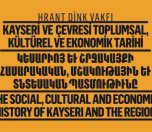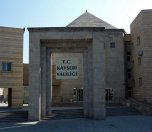The Constitutional Court has ruled that the 2019 decision to ban a conference organized by the Hrant Dink Foundation in Kayseri was a violation of the foundation's constitutional rights to assembly and demonstration.
The court determined that the Kayseri Governor's Office had unlawfully blocked the event, citing concerns about public safety and the conference’s alignment with the foundation’s objectives.
The ruling underscored that authorities cannot limit events based on subjective interpretations of their content or anticipated reactions. Hence it dismissed claims that certain historical terms used in the conference, such as "genocide" or "massacre," warranted the prohibition, reiterating that freedom of expression includes the right to challenge and debate sensitive historical issues.
The conference, titled "Social, Cultural, and Economic History of Kayseri and Surroundings," was set to take place on Oct 18-19, 2019, with an international panel of scholars discussing historical changes in the region between 1850 and 1950. However, the governor’s office prohibited the event, claiming it was incompatible with the foundation’s stated purpose and posed a threat to public order.
'No concrete evidence'
The Hrant Dink Foundation, named after the murdered Armenian journalist, filed a legal challenge against the ban, which was initially dismissed by local courts. Following an appeal, the foundation brought the case before the Constitutional Court, arguing that the ban infringed on their rights to assembly and free speech.
In its ruling, the Constitutional Court emphasized that public authorities must provide relevant and sufficient justifications when restricting basic rights. The court noted that the ban lacked a sound legal basis, and there was no concrete evidence to suggest the conference posed a threat to public safety. It further highlighted that expressions that may be controversial or provocative still fall under the protection of free speech in a democratic society.
The court ruled in a unanimous decision that the foundation’s constitutional right to organize demonstrations and public gatherings, as outlined in Article 34 of the Constitution, had been violated. (VK)









